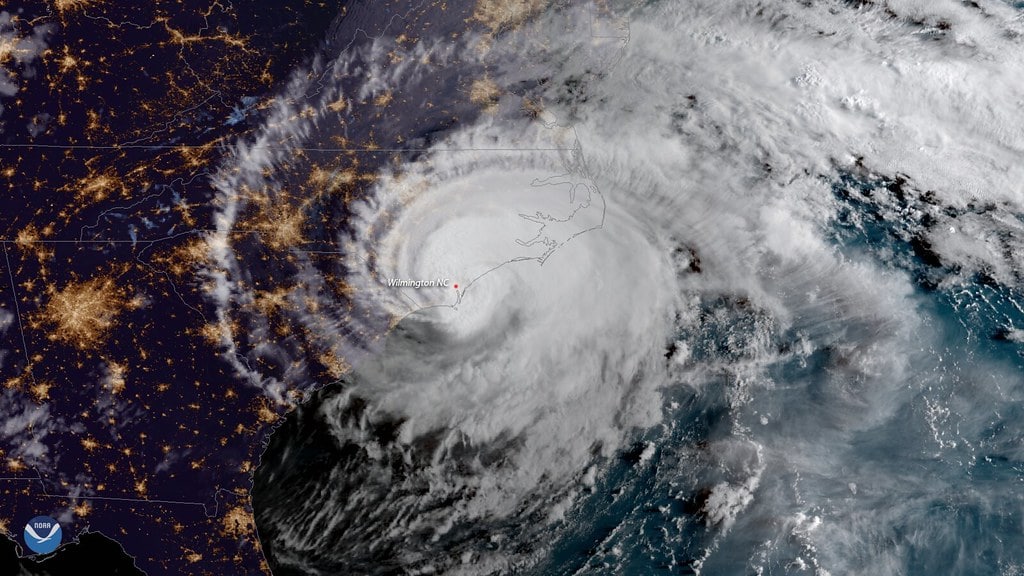Hurricane Preparedness

As the Hurricane season approaches once again, we at Wilmington Realty can’t stress enough the importance of being prepared for the worst-case scenario. Hurricanes can not only damage property but endanger lives as well. Being as prepared as possible can help you and your family minimize the impact of the storm. If a watch has already been issued, it may be too late!
Things to keep in mind are as follows:
Planning & Preparation
-
Evacuation Planning
Evacuation is based on proximity to the coast as well as the type of home you have, for example, residents in mobile homes may be more likely to need evacuation than those in a brick and mortar home, although under the same storm threat situation.
There will be instructions issued by local authorities, however, it’s advisable to have your own evacuation plan in place well before a disaster strikes. Take consideration of your pets by making note ahead of time about the nearest shelters. Make sure to take any important papers. Make trial emergency runs on a periodic basis.
As a tenant you are expected to protect your property to the best of your ability and report storm damages as quickly as possible. Should you need to evacuate and will be unable to return to your property immediately following the storm, please let your landlord or neighbor know so that the property can be inspected.
-
Non-perishable Goods
Stock up on store items as much as possible to stay ahead, as when a hurricane warning is issued, people tend to rush for the stores. Here’s a checklist of essential items to keep on hand:
- Extra fresh batteries of all necessary sizes
- Candles or lamps with fuel
- Dry matches, preferrably waterproof
- Materials and tools for emergency home repairs, such as heavy plastic sheeting, plywood, a hammer
- Prescription drugs and all associated information regarding the prescriptions
- Supply of fresh drinking water to last at least three days
- Additional water for cleaning and other purposes
- Non-refrigerated foods such as canned items and MREs (Meals Ready to Eat). Be sure to have a can opener on hand
- First-aid supplies such as iodine, bandaids, gauze, isopropyl alcohol, hydrogen peroxide, tweezers, and scissors
- Battery-powered communcations equipment such as a NOAA weather radio, cellphone with accessories
- Basic tools including a wrench, screwdriver, pliers, and a sharp knife
- Flashlight with fresh batteries
- Towels, blankets, tarps, and duct tape
- Toilet paper
- Entertainment items such as books and games
- Baby supplies, if needed
- Cash, as ATMs may be out of service
- Rain gear, sunscreen, headwear such as hat or tobaggan
- Bleach or water purification tablets or bottled water
- Soap and detergent
- Moist towelettes, garbage bags and plastic ties
- Charcoal, lighter fluid, and camping stove and propane tank
- Disposable plates, glasses and utensils
- Ice chest and ice
- Valuable papers, or copies, in a waterproof bag
- Three days’ worth of clothing, sleeping bags
- Insect repellent
- Fire extinguisher – ABC type
- Extra pair of eyeglasses
- Extra house and car keys
- Whistle
- Pet care: leashes, pet carriers, food
- Gasoline-powered generator
NOTE: Should you need to evacuate, bring all of your emergency supplies with you. Pay attention to expiration dates on food and batteries, and when items are put to use, replace them in your emergency cache with fresh ones.
-
Property Inventory
Creating an inventory of home items will help to ensure that your purchased possessions will be replaced by your insurer. Not only will it expedite the claims process, but will be useful in reporting losses on your income tax, as well as aid in the process of applying for any disaster relief.
-
Insurance Status
Review all relevant insurance policies to ensure that premiums are up to date and that they’re of active status.
Tenants are typically responsible to insure their personal belongings with renter’s insurance, as they are not covered by the Landlord’s property insurance.
If you have questions about what your current policy will cover or need to augment your current coverage, contact your insurance professional.
-
Home Protection Tips
Hurricane-force winds can turn landscaping materials and other outside objects into dangerous projectiles that can break windows and doors and cause additional damage. Much property damage can occur after the initial windstorm as rain enters structures through broken windows, doors, and openings in the roof.
Cut weak trees and limbs that could possibly fall into your house.
If feasible, apply plywood panels to your windows, which can be nailed to window frames when a storm approaches.
If you have a boat on a trailer, know how to anchor the trailer to the ground. Also, review your insurance policy regarding boat coverage.
For additional preparedness, there is an app available called Know Your Plan by I.I.I. to help prepare you, your family, and your pets, should an emergency strike. It includes checklists (some of which allow for personalization), and evacuation planning information to cover any number of different types of disasters.
Certainly, it’s virtually impossible to be over-prepared for any emergency, and the list of tips above is not all-inclusive. So anything extra you can do to prepare for a hurricane will be an added measure of precaution.
An ounce of prevention, is worth a pound of cure. “ – Benjamin Franklin





